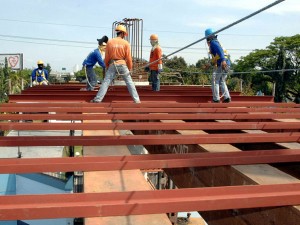
The Department of Trade and Industry has stepped up its monitoring efforts amid speculations that prices of basic necessities and prime commodities have spiked as a result of the continued congestion at the port of Manila. INQUIRER FILE PHOTO
MANILA, Philippines—The Department of Trade and Industry has stepped up its monitoring efforts amid speculations that prices of basic necessities and prime commodities have spiked as a result of the continued congestion at the port of Manila.
“The list of suggested retail prices for basic necessities and prime commodities that we have issued last July 2 to guide retailers and consumers still stands. As of the moment, there are no requests for price adjustments from the industries and the retailers are expected to observe these prices,” Trade Undersecretary Victorio Mario A. Dimagiba clarified in a statement issued Tuesday night.
“Still, the (DTI) is not discounting the fact that an impact of higher port and other transport charges on imported materials and products is an increase on their prices. In this case, we urge the industry to reasonably recover their added costs, and to which we’ll ensure upon evaluation that the increase is appropriate on cost per unit,” Dimagiba added.
The DTI has urged owners and operators of supermarkets, grocery stores, wet markets and general merchandise stores to comply with the specified suggested retail prices (SRPs) for products classified as basic necessities and prime commodities under Republic Act 7581 (Price Act).
“We have already issued show-cause orders to these retailers that we have found selling more than the SRPs for basic and prime goods in the last two weeks of July and first two weeks of August,” Dimagiba disclosed.
“We will continue to reinforce our monitoring activities on the prices of basic and prime goods so we can prevent undue price adjustments from retailers. We have added more teams particularly in the NCR because more stores are found here but our regional and provincial offices ensure that they also regularly monitor the markets in their areas,” he added.


